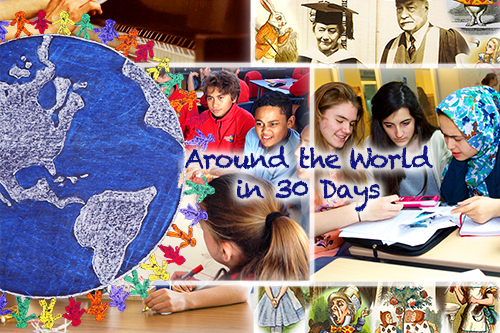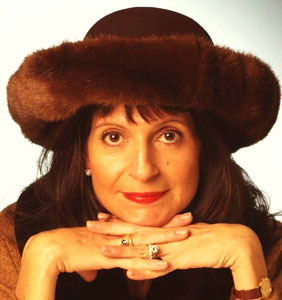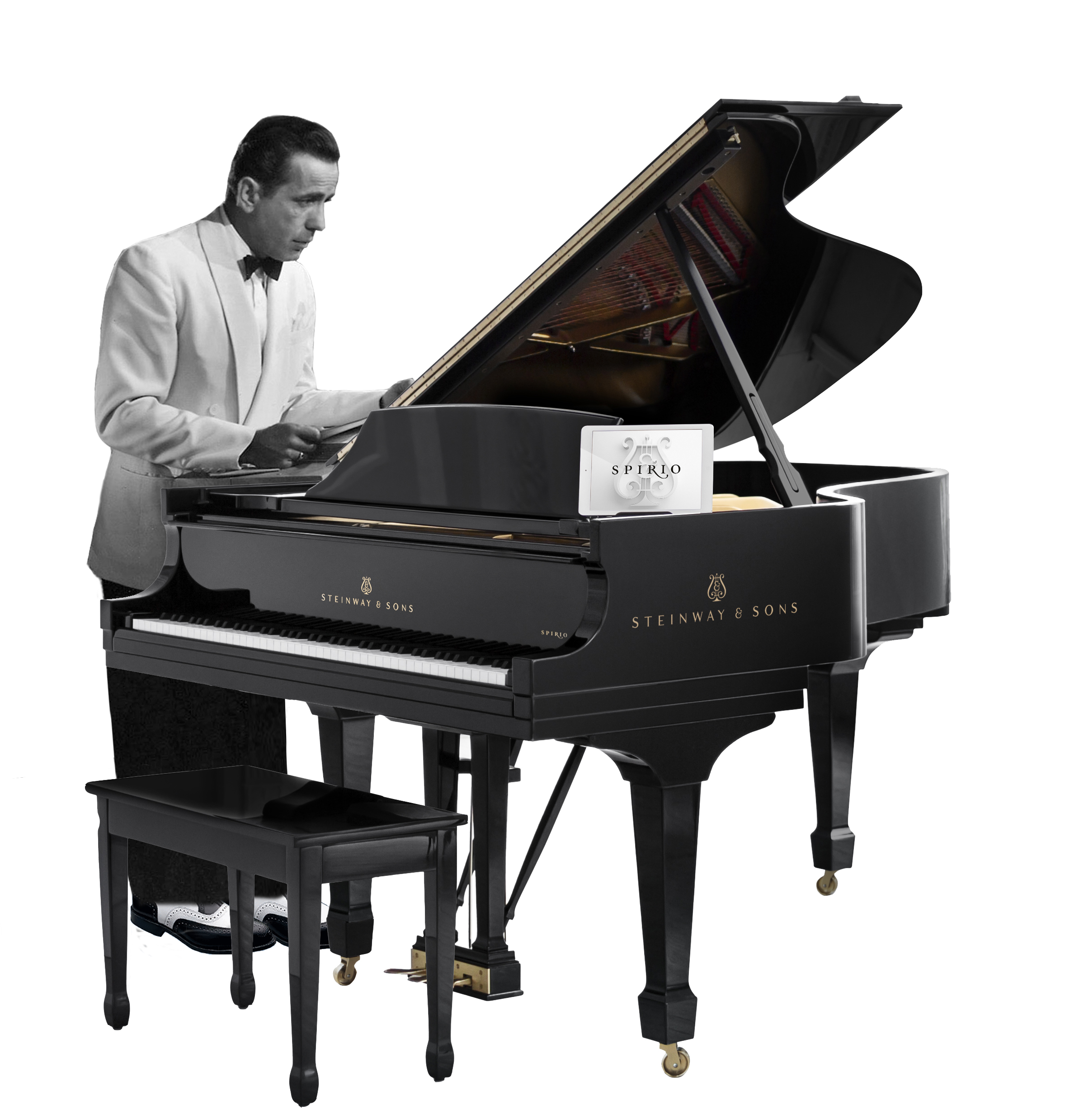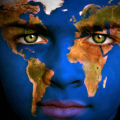
“Robots that care for us as we grow old. Cyberattacks against our homes. Extinct animals brought back to life. Ubiquitous sensors eliminating privacy as we now know it. Everybody will have a scandal! In ten years, a small earpiece will whisper what is being said to you in your native language near simultaneously to the foreign language being spoken.” I agree with Alec Ross, auteur de Les industries de l'avenir, that the most important job I have is being a Mom. My kids are growing up with challenges and opportunities my generation thought were fantastical themes in movie scripts.
What does this all mean for how we prepare our kids in school? What do we teach them about the innovations that are available right now and what do we teach them to ensure they are part of the innovations that are coming soon? For five years, La recherche globale pour l'éducation has been exploring those questions; once again this month, we share more fascinating insights from around the world. Michael Sweeney, PDG de Steinway & Fils, talked to me about the impact his new concert pianist – a robot called Spirio – will have on the world of music. Executive business leader Roland Kupers in The Netherlands wants us to focus more on systems learning. Director of Infinity Learn Limited, Dr Brian Annan in New Zealand, shares his vision for the future of schools, including why “some students will not see the need to go to school at all.” Enfin et surtout, our top global teacher bloggers share tested tips for cultivating readers, and I reflect on my newest adventures in Wonderland as the book I originally published over 5 years ago goes back into stores just in time for Disney’s new film, Alice Through The Looking Glass.
Imagine Lang Lang performing Chopin at Carnegie Hall, mais vous vivez à Dallas et ne pouvez pas vous rendre à New York. With Spirio, there is the potential for the concert to be live-streamed into your living room. Michael Sweeney, PDG de Steinway & Fils, discusses the miraculous capabilities of Steinway’s Spirio (a new high-resolution player piano that provides an unrivaled musical experience, indiscernable d'une performance live) and offers some insight into the future of music.
Dr. Brian Annan’s company, Infinity En savoir Ltd, explores the merger of learning and wellbeing. In his interview with La recherche globale pour l'éducation, Brian envisions a future for schools that will extend the boundaries out into museums, bibliothèques, the corporate world and environmental communities. “[Ces] places are potential sites for learning and development whereby our youth contribute to community and environmental improvement. So the community at large rather than the school or network of schools is seen as the vital engine room for integration of technology and media.”
Roland Kupers wants students to develop the kind of habits conducive to understanding their world in all its complexity. We need a new science that is capable of explaining the intricacy that has been introduced to the world by globalization and technological advances. Par exemple: “Understanding the influence of climate change on the crises of agriculture, urbanization and poverty in the Middle East casts a different light on the links between environmental policy and terrorism, and our choices therein”; et “Understanding that a human body is constituted of 90% non-human cells sheds a different light on the nature of our individuality.”
Language is the ultimate tool of humanity. Notre Maître Bloggers mondial sont des pionniers et des innovateurs dans des domaines tels que l'intégration de la technologie, mathématiques entraîneur, besoins éducatifs spéciaux, l'enseignement des sciences, et de l'équité entre les sexes. This month we asked them to share answers to the question: How do we do a better job of cultivating young readers? Our experts from very diverse schools around the globe agreed that reading should be more fun and fulfilling than forced and tedious. We should not only teach reading but engender a love of literature. “En tant qu'éducateurs, we should be role models. If we want our students to love reading, we need to love reading,” note Todd Finley.
And speaking of books…. did you know that after the bible and Shakespeare, Alice In Wonderland is the most quoted book of all time? It’s been five years since my daughter and I self-published The Real Alice au pays des merveilles, a book which tells the actual story behind the publication of the handwritten, hand illustrated original manuscript, Adventures Underground Alice, que Lewis Carroll a donné comme un cadeau de Noël en avance à notre rapport Alice Liddell dans 1864. A simple question – “Maman, comment sommes-nous liés à Alice Liddell?” – made us very curious. This led to research, a successful school book day presentation, a series of creative book workshops, and then meetings with booksellers which culminated in the production of our lush coffee table book now in stores again 5 years after it was first released. As Alice would I am sure agree, curiosity is a truly amazing gift – it takes you down rabbit holes where you are able to explore fantastical problems and learn important things in the doing. And when that curiosity is nurtured, who knows how far you might go? What new opportunities might present themselves? What life changing experiences might be had?
Nos remerciements à tous nos amis et sympathisants à travers le monde – Always be curious!
(Les photos sont une gracieuseté de CMRubinWorld)

Rejoignez-moi et leaders d'opinion de renommée mondiale dont Sir Michael Barber (Royaume-Uni), Dr. Michael Bloquer (États-Unis), Dr. Leon Botstein (États-Unis), Professeur Clay Christensen (États-Unis), Dr. Linda Darling-Hammond (États-Unis), Dr. MadhavChavan (Inde), Le professeur Michael Fullan (Canada), Professeur Howard Gardner (États-Unis), Professeur Andy Hargreaves (États-Unis), Professeur Yvonne Hellman (Pays-Bas), Professeur Kristin Helstad (Norvège), Jean Hendrickson (États-Unis), Professeur Rose Hipkins (Nouvelle-Zélande), Professeur Cornelia Hoogland (Canada), Honorable Jeff Johnson (Canada), Mme. Chantal Kaufmann (Belgique), Dr. EijaKauppinen (Finlande), Le secrétaire d'Etat TapioKosunen (Finlande), Professor Dominique Lafontaine (Belgique), Professeur Hugh Lauder (Royaume-Uni), Seigneur Ken Macdonald (Royaume-Uni), Professeur Geoff Masters (Australie), Professeur Barry McGaw (Australie), Shiv Nadar (Inde), Professeur R. Natarajan (Inde), Dr. PAK NG (Singapour), Dr. Denise Pape (États-Unis), Sridhar Rajagopalan (Inde), Dr. Diane Ravitch (États-Unis), Richard Wilson Riley (États-Unis), Sir Ken Robinson (Royaume-Uni), Professeur Pasi Sahlberg (Finlande), Professeur Manabu Sato (Japon), Andreas Schleicher (PISA, OCDE), Dr. Anthony Seldon (Royaume-Uni), Dr. David Shaffer (États-Unis), Dr. Kirsten immersive, (Norvège), Chancelier Stephen Spahn (États-Unis), Yves Thézé (LyceeFrancais États-Unis), Professeur Charles Ungerleider (Canada), Professeur Tony Wagner (États-Unis), Sir David Watson (Royaume-Uni), Professeur Dylan Wiliam (Royaume-Uni), Dr. Mark Wormald (Royaume-Uni), Professeur Theo Wubbels (Pays-Bas), Professeur Michael Young (Royaume-Uni), et le professeur Zhang Minxuan (Chine) alors qu'ils explorent les grandes questions d'éducation de l'image que toutes les nations doivent faire face aujourd'hui.
La recherche globale pour l'éducation communautaire page
C. M. Rubin est l'auteur de deux séries en ligne largement lecture pour lequel elle a reçu une 2011 Upton Sinclair prix, “La recherche globale pour l'éducation” et “Comment allons-nous savoir?” Elle est également l'auteur de trois livres à succès, Y compris The Real Alice au pays des merveilles, est l'éditeur de CMRubinWorld, et est une fondation perturbateurs Fellow.
Suivez C. M. Rubin sur Twitter: www.twitter.com/@cmrubinworld





Commentaires récents